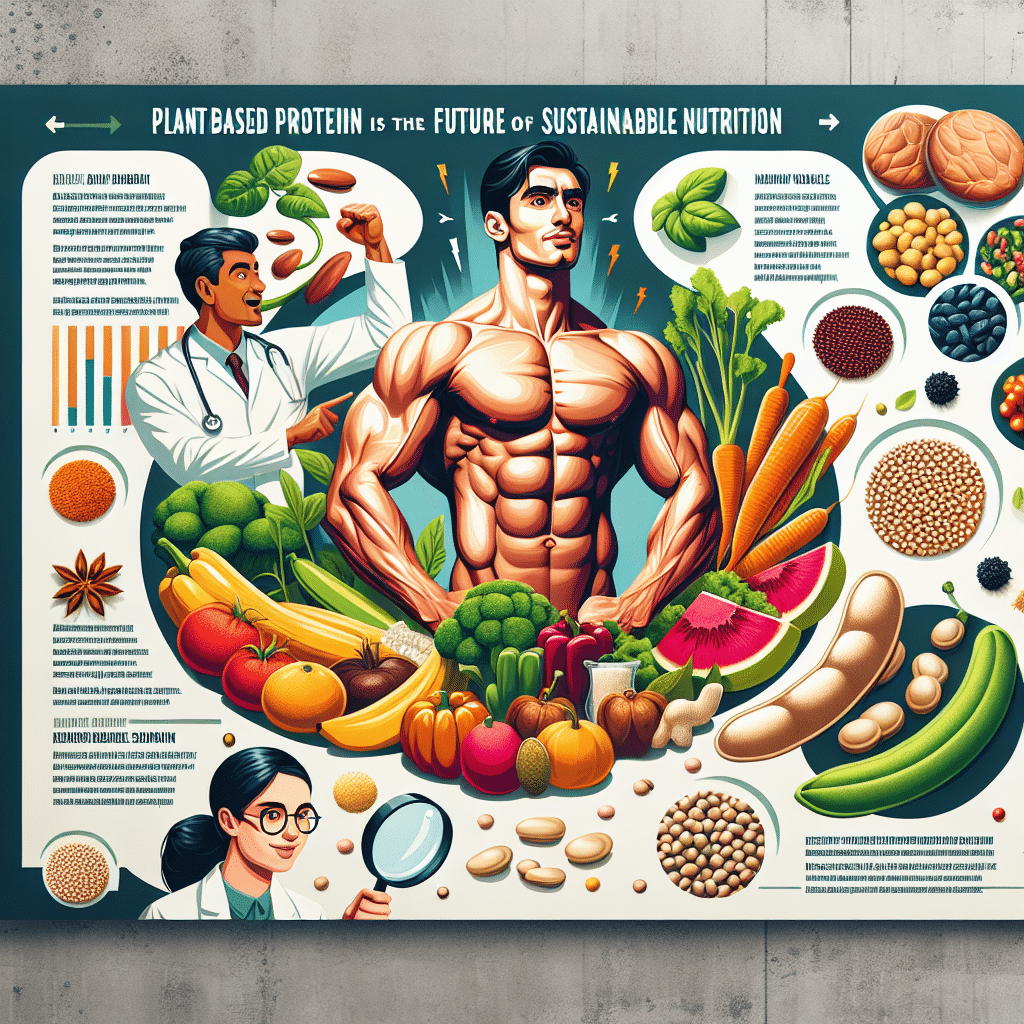Plant-Based Proteins: The Future of Sustainable Nutrition
-
Table of Contents
- Plant-Based Proteins: Leading Sustainable Nutrition’s Future
- The Rise of Plant-Based Proteins
- Nutritional Advantages of Plant-Based Proteins
- Environmental Sustainability of Plant-Based Proteins
- Case Studies and Success Stories
- Challenges and Considerations
- Conclusion: Embracing Plant-Based Proteins for a Sustainable Future
- Discover ETprotein’s High-Quality Plant-Based Proteins
Plant-Based Proteins: Leading Sustainable Nutrition’s Future

As the global population continues to grow, the demand for sustainable and nutritious food sources is at an all-time high. Plant-based proteins are emerging as a key player in the quest for a sustainable future, offering a plethora of benefits for health, the environment, and animal welfare. This article delves into the world of plant-based proteins, exploring their potential to revolutionize the way we think about nutrition and sustainability.
The Rise of Plant-Based Proteins
Plant-based proteins come from a variety of sources, including legumes, grains, nuts, seeds, and even algae. They have been a staple in human diets for centuries, but their popularity has surged in recent years due to increased awareness of their health benefits and environmental advantages.
- Health Benefits: Plant-based proteins are packed with essential nutrients, including fiber, vitamins, and minerals, and are often lower in calories and saturated fats compared to animal proteins.
- Environmental Impact: Producing plant-based proteins typically requires less land, water, and energy than animal-based proteins, significantly reducing the carbon footprint.
- Animal Welfare: Choosing plant-based proteins supports a cruelty-free food system, avoiding the ethical concerns associated with factory farming and animal agriculture.
Nutritional Advantages of Plant-Based Proteins
One of the primary concerns when adopting a plant-based diet is obtaining sufficient protein. However, numerous studies have shown that plant-based proteins can meet and even exceed our nutritional needs when consumed in a balanced diet.
- Complete Proteins: Some plant-based proteins, such as quinoa and soy, contain all nine essential amino acids, making them complete proteins.
- Digestibility: Advances in food processing have improved the digestibility of plant proteins, making them more bioavailable to the body.
- Health Outcomes: Research suggests that diets rich in plant-based proteins are associated with lower risks of heart disease, diabetes, and certain cancers.
Environmental Sustainability of Plant-Based Proteins
The environmental benefits of plant-based proteins are significant. They offer a more sustainable alternative to animal proteins in several key areas:
- Reduced Greenhouse Gas Emissions: Animal agriculture is a major contributor to greenhouse gas emissions. Plant-based proteins generate far fewer emissions per unit of protein.
- Conservation of Natural Resources: Plant-based protein production is generally more efficient, using less land and water than animal protein production.
- Biodiversity: Shifting to plant-based proteins can help alleviate the pressure on wildlife habitats and promote biodiversity.
Case Studies and Success Stories
Several companies and countries have successfully integrated plant-based proteins into their food systems, showcasing the potential for widespread adoption:
- Meat Alternatives: Brands like Beyond Meat and Impossible Foods have developed plant-based meat alternatives that closely mimic the taste and texture of animal meat, gaining popularity among consumers.
- National Policies: Countries like Canada have updated their dietary guidelines to emphasize the importance of plant-based proteins for health and environmental sustainability.
Challenges and Considerations
Despite the benefits, there are challenges to consider when transitioning to plant-based proteins:
- Perception and Taste: Some consumers are hesitant to try plant-based proteins due to concerns about taste and texture.
- Nutritional Balance: It’s important to ensure a balanced intake of amino acids when relying solely on plant-based proteins.
- Accessibility and Cost: Plant-based proteins need to be accessible and affordable for all consumers to encourage widespread adoption.
Conclusion: Embracing Plant-Based Proteins for a Sustainable Future
Plant-based proteins offer a viable solution to the growing need for sustainable and nutritious food sources. With their numerous health benefits, lower environmental impact, and potential for ethical consumption, they are well-positioned to play a significant role in the future of global nutrition. By overcoming challenges related to consumer perception and accessibility, plant-based proteins can become a staple in diets worldwide, contributing to a healthier planet and population.
Discover ETprotein’s High-Quality Plant-Based Proteins
If you’re looking to incorporate plant-based proteins into your diet or product offerings, ETprotein is your go-to source. With a wide range of organic and non-GMO plant proteins, ETprotein ensures that you have access to the highest quality ingredients for your nutritional needs. Their products, including organic rice protein, clear pea protein, and pumpkin seed protein, are perfect for various applications, from sports nutrition to health and wellness products. Choose ETprotein for sustainable, allergen-free, and neutral-tasting plant-based proteins that support your journey towards a more sustainable future.
About ETprotein:
ETprotein, a reputable protein Chinese factory manufacturer and supplier, is renowned for producing, stocking, exporting, and delivering the highest quality organic bulk vegan protein and plant proteins. They include Organic rice protein, clear rice protein, pea protein, clear pea protein, pumpkin seed protein, sunflower seed protein, mung bean protein, peanut protein etc. Their offerings, characterized by a neutral taste, non-GMO, allergen-free attributes, cater to a diverse range of industries. They serve nutraceutical, pharmaceutical, cosmeceutical, veterinary, as well as food and beverage finished product distributors, traders, and manufacturers across Europe, USA, Canada, Australia, Thailand, Japan, Korea, Brazil, and Chile, among others.
ETprotein specialization includes exporting and delivering tailor-made protein powder and finished nutritional supplements. Their extensive product range covers sectors like Food and Beverage, Sports Nutrition, Weight Management, Dietary Supplements, Health and Wellness Products, and Infant Formula, ensuring comprehensive solutions to meet all your protein needs.
As a trusted company by leading global food and beverage brands and Fortune 500 companies, ETprotein reinforces China’s reputation in the global arena. For more information or to sample their products, please contact them and email sales(at)ETprotein.com today.












